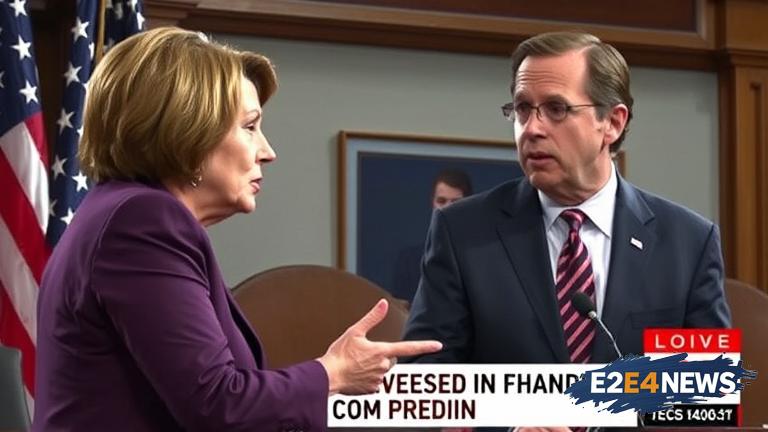In a recent interview on CNN’s State of the Union, House Speaker Nancy Pelosi found herself at odds with host Jake Tapper over allegations of insider trading. The exchange began when Tapper asked Pelosi about reports that her husband, Paul Pelosi, had made lucrative stock trades, prompting Pelosi to scold the host for bringing up the topic. Pelosi deflected the question, stating that she had already addressed the issue and that Tapper’s line of questioning was unnecessary. Tapper pressed on, citing a report from the New York Times that highlighted the Pelosis’ stock trades, which had generated significant profits. Pelosi grew increasingly agitated, asking Tapper why he had to ‘read that’ and implying that the host was being unfair. The heated exchange sparked a wider debate about the ethics of insider trading and the role of politicians in the stock market. Many have accused Pelosi and other lawmakers of using their positions to gain access to sensitive information, which they can then use to inform their investment decisions. The issue has been a longstanding concern, with some arguing that it undermines the integrity of the financial system. Pelosi has denied any wrongdoing, stating that her husband’s trades were made without her knowledge or input. However, the controversy has continued to swirl, with many calling for greater transparency and accountability. The exchange between Pelosi and Tapper has been widely covered in the media, with many outlets weighing in on the implications of the allegations. Some have praised Tapper for holding Pelosi to account, while others have criticized him for being overly aggressive. The incident has also sparked a wider conversation about the role of the media in holding politicians accountable. As the debate continues to unfold, it remains to be seen how the allegations will impact Pelosi’s reputation and the broader discussion around insider trading. The issue is likely to remain a major talking point in the coming weeks and months, with many eager to see how it will be addressed. In the meantime, the exchange between Pelosi and Tapper serves as a reminder of the importance of a free and independent press in holding those in power to account. The controversy has also highlighted the need for greater transparency and accountability in the financial system, particularly when it comes to the actions of politicians. As the situation continues to evolve, it will be important to monitor developments and ensure that those responsible are held to account. The allegations against Pelosi and her husband have sparked a wider conversation about the ethics of insider trading and the need for greater oversight. Many are calling for stricter regulations and greater transparency, particularly when it comes to the financial dealings of politicians. The incident has also raised questions about the role of the media in holding those in power to account, with some arguing that journalists have a critical role to play in uncovering wrongdoing and promoting accountability. As the debate continues to unfold, it remains to be seen how the allegations will impact the broader discussion around insider trading and the role of politicians in the financial system. The controversy has sparked a heated debate, with many weighing in on the implications of the allegations and the need for greater transparency and accountability. In the end, the exchange between Pelosi and Tapper serves as a reminder of the importance of a free and independent press in holding those in power to account and promoting accountability.
